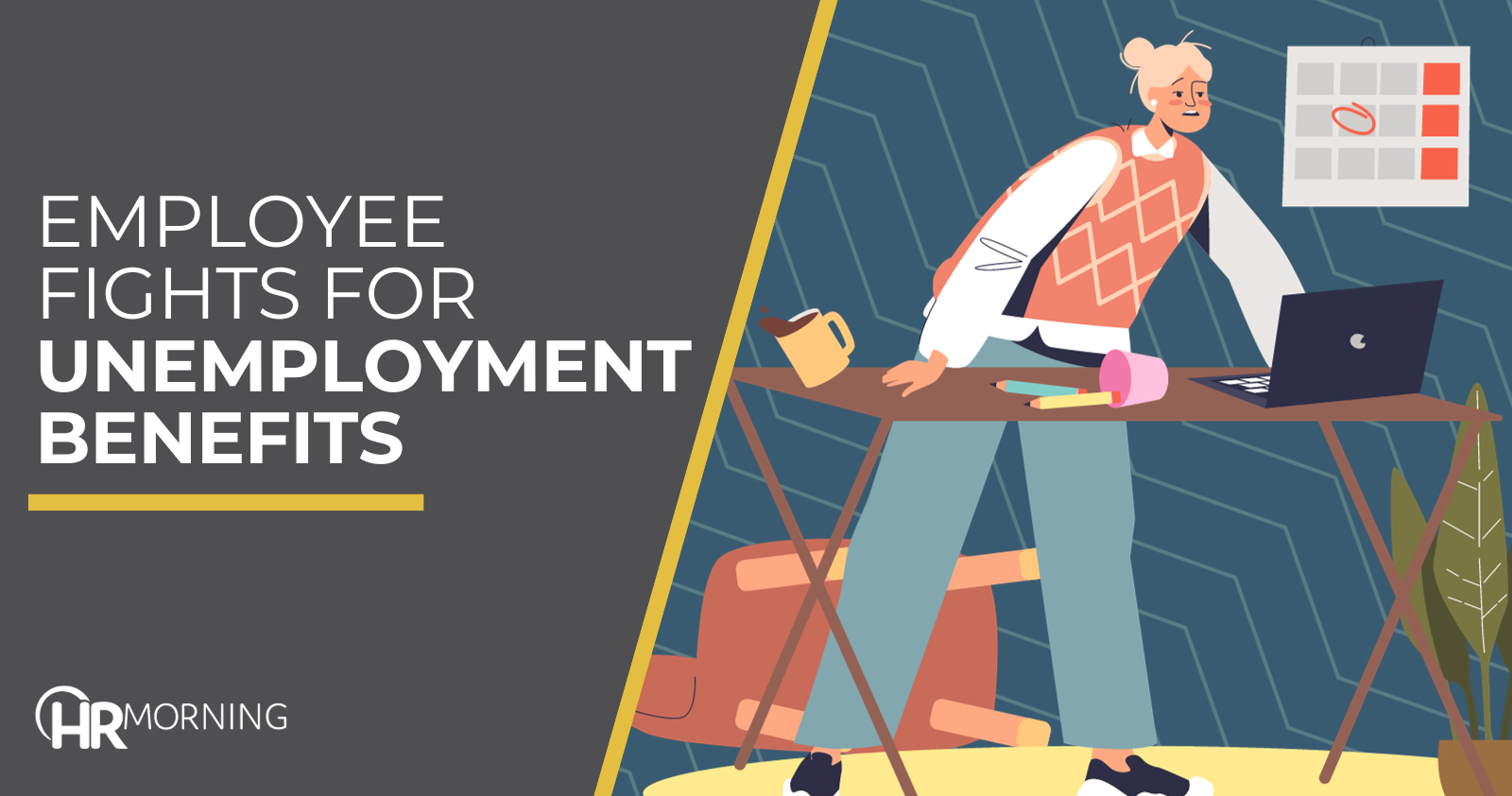Unemployment benefits: Should this problem employee get them?

One of the reasons an application for unemployment benefits can be denied is that the employee engaged in job-related misconduct.
But what exactly constitutes “misconduct” that is severe enough to result in disqualification?
In a recent case, Idaho’s highest court decided that a receptionist was not entitled to benefits because she repeatedly refused to meet with a superior relating to her job performance.
Who’s running the show here?
Amy Shumway was hired as a front desk receptionist for Evans Chiropractic in 2019. Evans Chiropractic is owned by Dr. John Hitchcock and Dr. Nathan Evans.
In March of 2016, Shumway told a patient that he did not need to pay for a visit because she believed Hitchcock had left a patient on a muscle stimulation therapy for too long. Hitchcock was not very happy to hear about what she had done, and he told her to collect payment.
Shumway then met with Evans to talk about Hitchcock, saying that he intimidated her and made her feel “that if you pushed his buttons the wrong way or if you got on his bad side that you would be terminated.”
Bright red ears
A few days later, Shumway had what she called a “pretty intense” conversation with Hitchcock after Evans told her that Hitchcock wanted to meet with her to apologize. She said his “ears got bright red” after she told him to stop micromanaging. She added that after he allegedly told her she needed to speak with him further if she wanted to keep her job, she became uncomfortable and left the room.
Hitchcock then repeatedly tried to meet with Shumway again to hash things out, to no avail. He said he messaged her to come to his office, but that he would wait in vain and then see that she was gone when he went to her work area.
Finally, Hitchcock waited in an area that Shumway had to pass in order to leave. He intercepted her as she walked by and told her that her employment was being terminated.
When Shumway applied for unemployment benefits, Evans Chiropractic contested her eligibility to receive them, saying she had been insubordinate.
The state’s labor department initially determined she was entitled to benefits because she was never told she would be fired if she did not meet with Hitchcock as instructed.
A state industrial commission upheld the finding of eligibility, saying the employer did not show Shumway “breached a clearly communicated expectation of employment.” The matter then reached the highest state court in Idaho.
No unemployment benefits for you
The court reversed the determinations below and found Shumway should not receive unemployment benefits. Shumway was insubordinate when she refused to meet Hitchcock’s reasonable expectation that she meet with him to talk about her behavior at work, the court said.
Under state law, it explained, benefits are to be denied if an employee engages in job misconduct, which includes “a disregard of a standard of behavior which the employer has a right to expect of its employees.”
Shumway was not eligible because her conduct fell below the employer’s reasonable expected standard of behavior, it found.
As to the argument that benefits should be granted because Shumway was not warned, the court said that “an expectation that flows naturally need not be communicated to an employee to be objectively reasonable.”
Translation: She should have known that refusing to meet was disqualifying insubordination.
Shumway’s refusal to meet with Hitchcock constituted insubordination that made unemployment benefits unavailable to her, the court decided.
The order of the commission was reversed.
Other disqualifiers
State laws vary on how to define misconduct that is severe enough to disqualify an applicant for unemployment benefits. In addition to misconduct, a claimant may be denied benefits if:
- They are not actively looking for work
- They quit voluntarily and without good cause to do so, or
- They did not meet state-specific requirements relating to time worked or wages earned.
The case is Shumway v. Evans Chiropractic, No. 50045 (Idaho 12/28/23).

